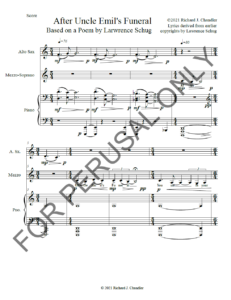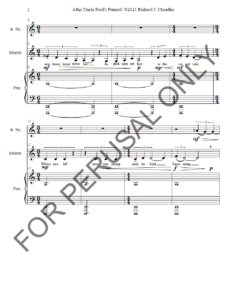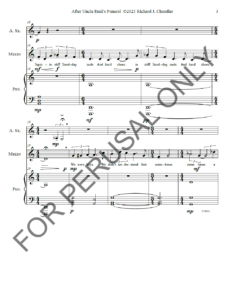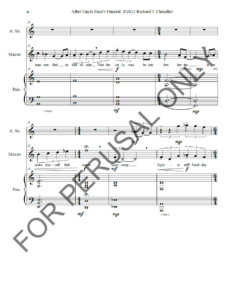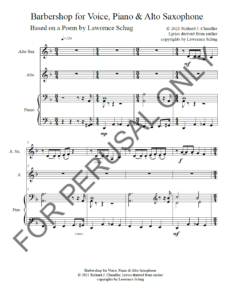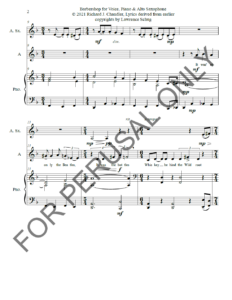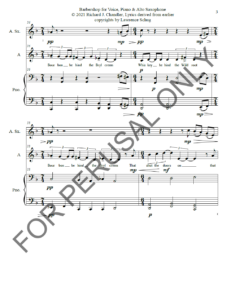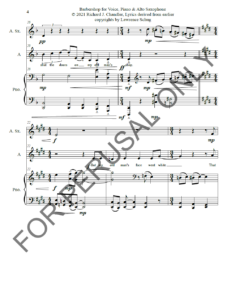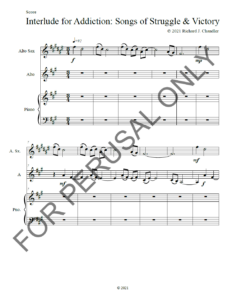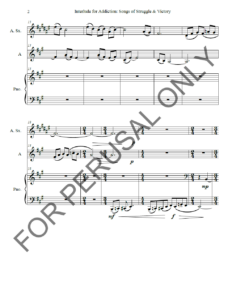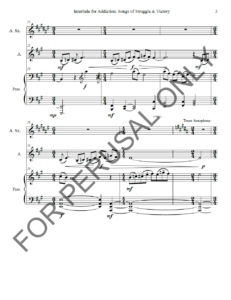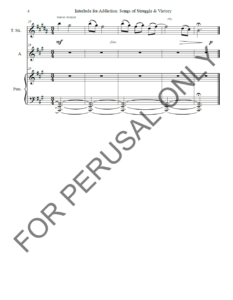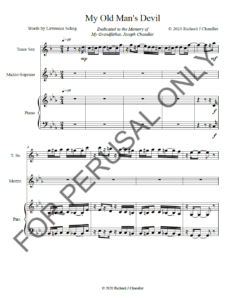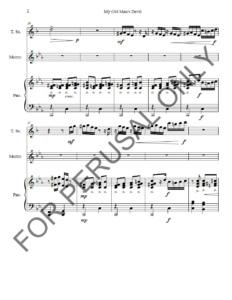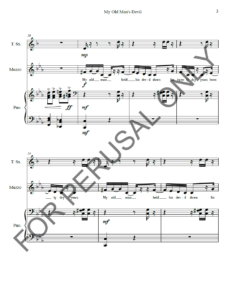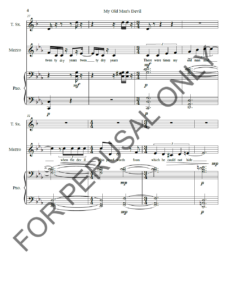Addiction: Songs of Struggle and Victory

About This Collection
The "Songs for Addiction and Victory" is a collection of compositions by Richard J Chandler that explores addiction, struggle, and triumph themes. Inspired by the profound poems of Larry Schug, these songs delve into the personal experiences of individuals affected by addiction and the journey toward recovery. Through lyrics and melodies, Chandler brings these stories to life, highlighting the compassion, resilience, and determination of the human spirit.
Performance and Reception
Premiered in April 2022, the collection received positive feedback for its emotional impact and the unique combination of poetry and music. While the subject matter addresses sensitive and somber themes, the compositions also offer moments of hope and upliftment. Chandler's compositions feature varying time signatures, showcasing his distinctive style that is both engaging and thought-provoking.
The "Addiction: Songs of Struggle and Victory" collection provides a powerful musical exploration of addiction, struggle, and the triumph of the human spirit. It offers performers an opportunity to connect with the deeply personal stories and emotions conveyed through Chandler's compositions, creating a memorable and impactful experience for both musicians and audiences alike.
Composer's Notes:
“I have witnessed addiction’s carnage in the lives of friends and relatives in my personal life and professionally in my work as a psychotherapist.
Minnesota poet, Lawrence Schug, wrote these poems about how his father’s alcohol addiction affected him. Those poems touched me deeply, and I was inspired to ask Larry to allow me to set them to music.
The first poem, “After Uncle Emil’s Funeral,” is set when Lawrence was a youngster and his father’s brother had died; the funeral had just ended. The poem reflects on the discomfort of Larry and his brother. They were stuck out in their dad’s car, still in their “stiff Sunday suits and hard shoes” while his father drank to dull his pain in the local small-town bar.
The second poem, “Barbershop,” tells the story of his father’s failing barbershop, which his father blamed on the move towards longer men’s hairstyles brought on by the popularity of the Beatles. “It wasn’t only the Beatles; it was the bottles.” “Whiskey behind the Wildroot. Bourbon behind the Brylcream.”
The short “Peaceful Interlude” between the 2nd and 3rd pieces provides a respite from the darker quality of the songs. The interlude contains two themes and their interplay as cannons with the voice utilized solely as an instrument.
The last poem, “My Old Man’s Devil,” is a victory song celebrating 20 years of sobriety during the last years of the life of Lawrence’s father, in the face of his father’s ongoing struggle not to be tricked by his devil into drinking again. “My old man told me there were nights, the devil came around, spoiling for a fight.” My old man held his devil down for 20 dry years.”
After Uncle Emil's Funeral
This poignant composition reflects on the experience of two young boys whose father, struggling with alcohol problems, parks the car outside a bar after attending his brother's funeral. Chandler's music captures the compassion and introspection as the narrator reflects on his father's journey and the impact it had on their lives.
Barbershop
"Barbershop" transports listeners to a time when the Beatles' popularity caused a shift in hairstyles. The composition explores the story of Larry Schug's father, a barber whose shop faced decline not due to changing trends but because of his alcoholism. Chandler's music captures the emotional depth of this tale, emphasizing the complexities of addiction and its ripple effects.
My Old Man's Devil
In "My Old Man's Devil," Chandler delves into the dynamics of ongoing battles with addiction. The composition portrays the narrator's father viewing alcohol as his double, constantly tempting him to relapse. Through powerful melodies and harmonies, Chandler illustrates the daily struggles and ultimate victory over this internal demon.
